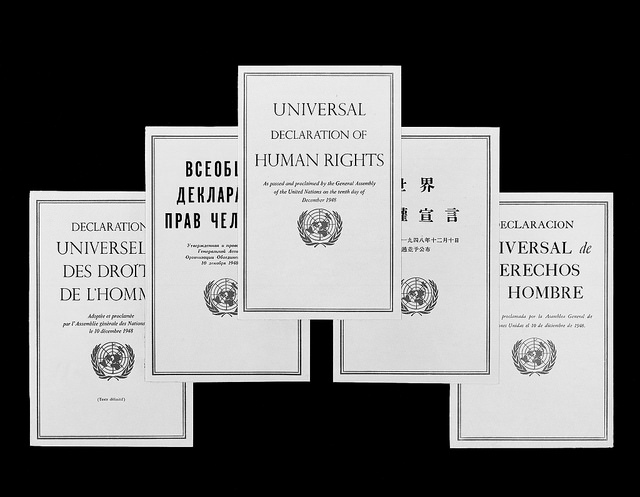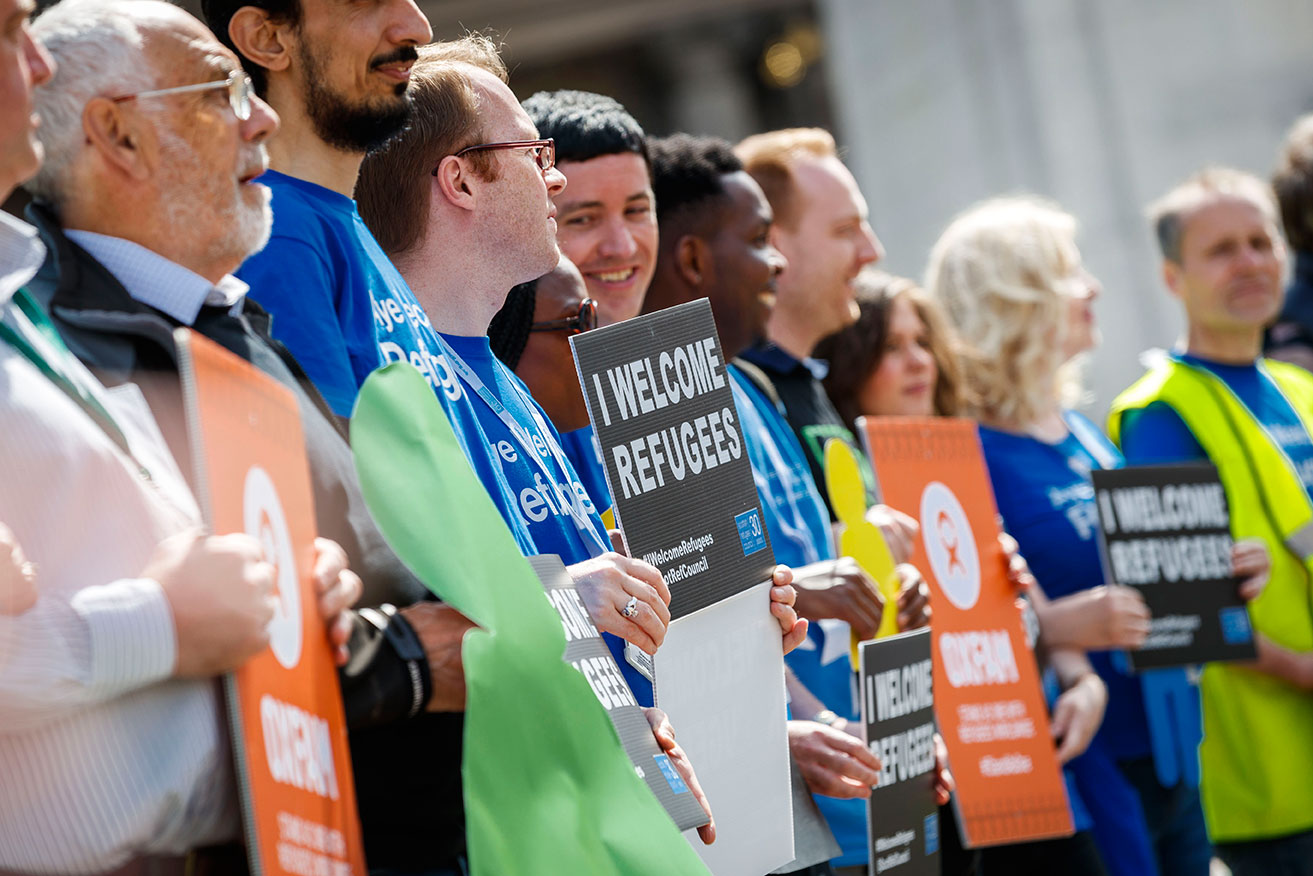Scotland Celebrates International Human Rights Day
To celebrate International Human Rights Day this year, we’re looking at some of the amazing initiatives taking place right across the country – and further afield.

On 10 December 1948, the United Nations General Assembly overwhelmingly adopted the Universal Declaration of Human Rights – the first proclamation of human rights ever created. In the 70 years since, countries around the world have come together on the anniversary of its introduction to celebrate this momentous declaration.
The Universal Declaration of Human Rights actually holds the record as the world’s ‘most translated document’. Since its introduction, the declaration has been reproduced in an incredible 500 different languages and dialects. The document itself consists of 30 articles which layout any individual’s inalienable rights as a human, regardless of their nation, location, language, religion, ethnic origin or any other status.
Scotland’s Reputation
Scotland has a world-renowned reputation for being a warm and open country; welcoming to all people in a manner that perfectly encapsulates the Universal Declaration of Human Rights. We take great pride in our standing as a good global citizen, ensuring that we help those in need not just within our country, but also around the world.
Whether it’s our world-leading stance on LGBTI rights, our pioneering work in the fight for gender equality, our long history of welcoming refugees and asylum seekers from all over the world who need a place of safety, or the incredible work we’re doing through our International Development Fund – Scotland fully embraces every human being’s fundamental rights.
So, to celebrate this year’s International Human Rights Day, we wanted to take some time to highlight just some of areas that we are doing work in to help make Scotland a better place to live, work, study, visit or do business in.

Racial Discrimination
Although Scotland has a strong national identity, this doesn’t stop us from embracing new cultures and new people. More than 170 languages are spoken in Scotland and these languages reflect a modern and inclusive country. We value Scotland’s diverse minority ethnic communities, the contribution they make to our society and the important role they play in enriching Scotland socially, culturally, and economically.
In December 2017, we published the Race Equality Action Plan, which outlined more than 120 actions we will take to secure better outcomes for ethnic minorities in Scotland. As part of this, we have allocated over £2.6 million in the last year to fund organisations who are dedicated to advancing race equality.
Another excellent example is a new collaboration between the Scottish Government and Glasgow Caledonian University. Together, they’re working to develop a process that will enable people from overseas who have migrated to Scotland to gain the correct recognition for the skills/qualifications they gained outside of Scotland.
Gender Equality
Scotland has long been a leader in the area of gender equality, but we know that there’s still a long way to go. We already boast the UK’s smallest gender pay gap and our 50/50 by 2020 initiative towards gender balance in the boardroom already enjoys the support of nearly 200 organisations – including our ruling government’s ministerial cabinet.
As well as this, we have projects in place that cover a huge range of things, including supporting women returning to work after a career break, addressing maternity and pregnancy discrimination and promoting female employment in traditionally male-dominated industries.
We’re just as dedicated to this cause on an international level, and the Scottish Scholarship Scheme for Women is a perfect example of this. The initiative aims to make higher education more accessible to underprivileged girls across Pakistan, with scholarships available in areas such as education, sustainable energy, agriculture and health sciences. This can help ensure that women are at the centre of today’s issues not only in Pakistan, but globally.

Disabled Rights
Tackling inequality is one of our main priorities and we aim to ensure that disabled people benefit from everything we’re doing to improve the lives of the people of Scotland. We have high ambitions for the changes we want to see, and disabled people have the right to no less. We believe that a fairer Scotland can only be realised when we secure equal rights for all.
In December 2016, we published a disability action plan, which as well as including five longer term ambitions, also has 93 practical actions that Scotland will look to deliver. These actions will help take us significantly closer towards fully realising the rights of disabled people in Scotland.
One brilliant example of this is The Access to Elected Office Fund Scotland, which was set up to offer financial assistance to disabled people who are seeking elected office. Successes in this initiative were seen in the Local Government elections in 2017, when 39 people with a wide range of disabilities were supported by the Fund and an impressive 15 were elected.
Mental Health
In recent years, the awareness of mental health issues has really come to the fore around the world. In Scotland, we are fully committed to doing all we can to recognise and support the rights of people with mental health issues. We have several initiatives in place to tackle the stigma and discrimination that surrounds mental health as we seek to remove the barriers that prevent mental illness sufferers from reaching their full potential.
Scotland’s Mental Health Strategy consists of 40 specific actions focused around a commitment to engaging and empowering individuals and communities. We believe everyone has the right to the highest attainable standard of mental health, and one of our public health priorities is for a Scotland where we have good mental wellbeing. This means that the wide range of things that help us live in good health are available, accessible, acceptable and appropriate, and of equal quality.
One such example is The Mental Health (Scotland) Act 2015, which strengthens our current laws around this issue. Thanks to this Act, any person with a mental health issue has the right to support from an independent advocate. The Act also ensure that individuals can more clearly express their will and preferences about how they are supported as well as promoting the right to make an advance statement on treatment choices.